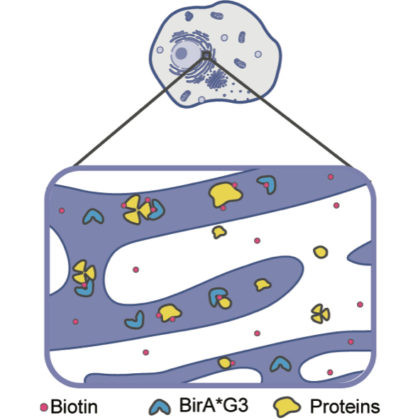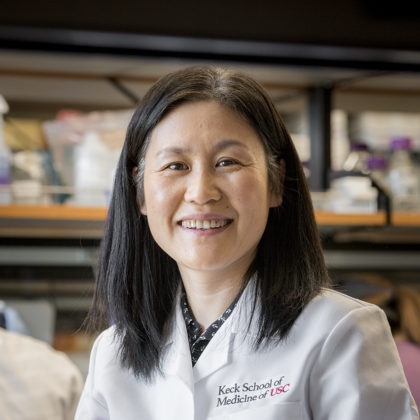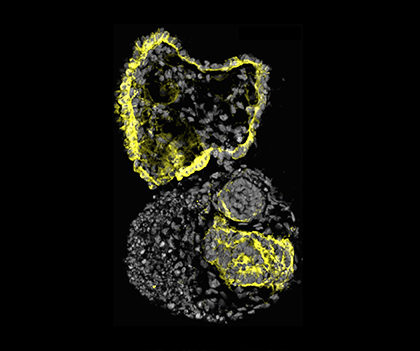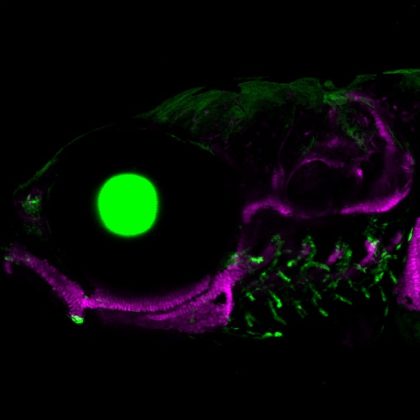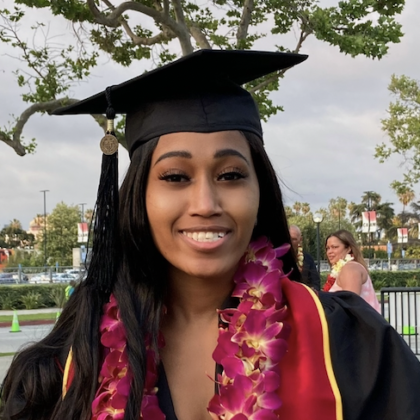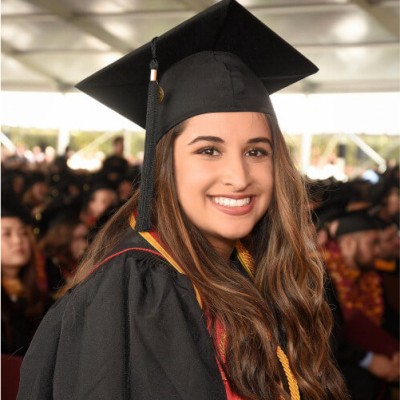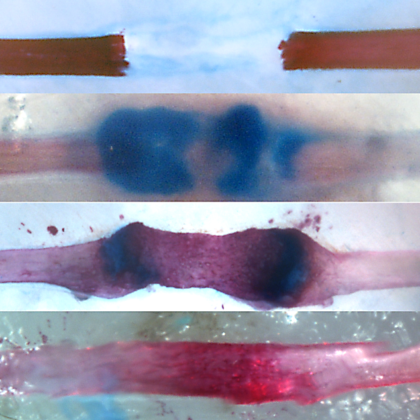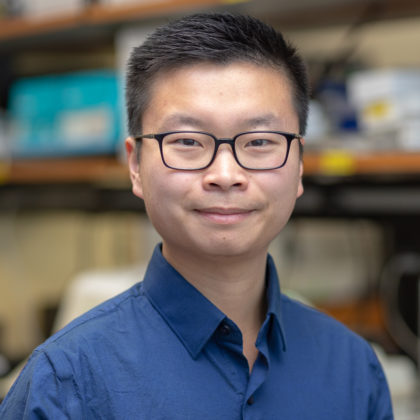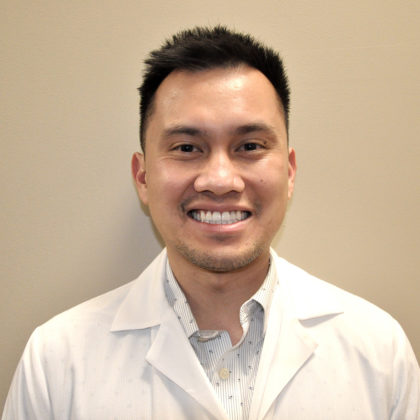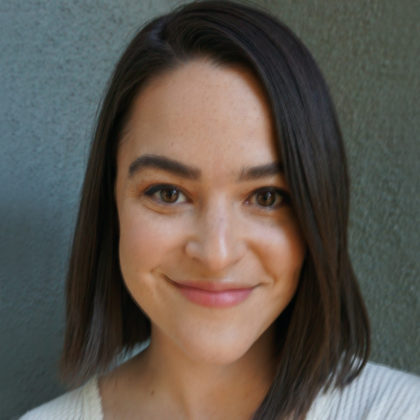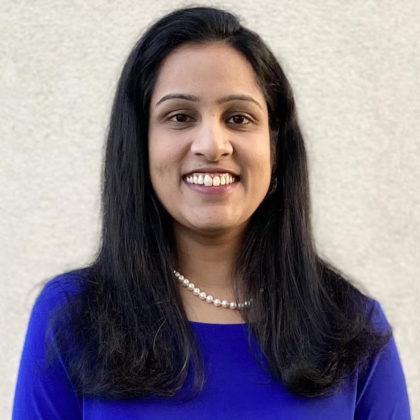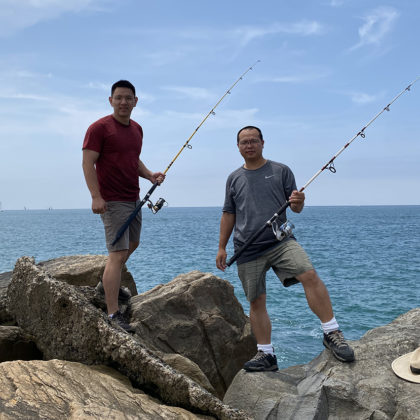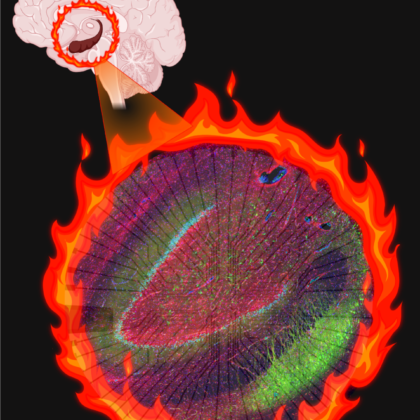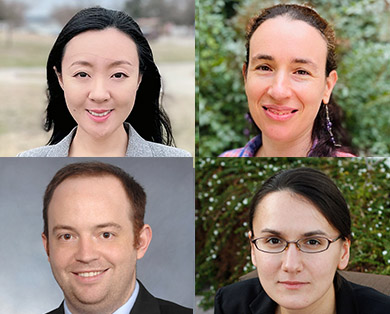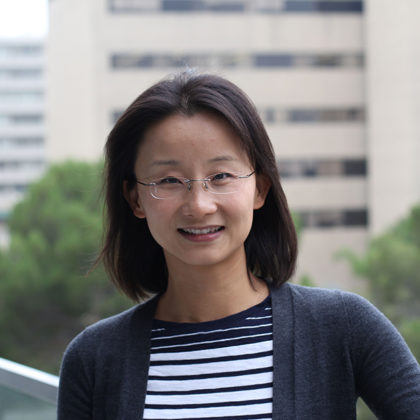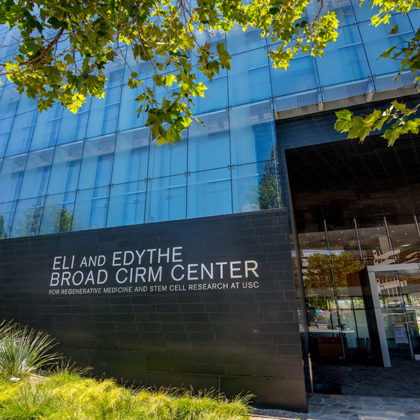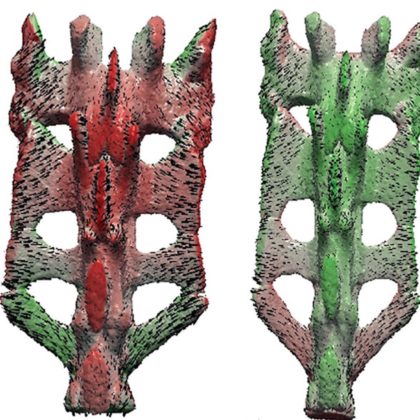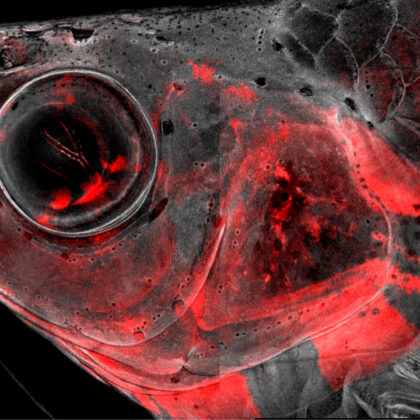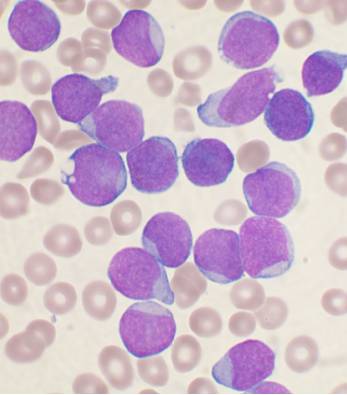Press inquiries, websites, social media, writing, editing, multimedia production, and public outreach
Stories
This mouse can’t keep a secret about the “secretome”
The “secretome” refers to proteins that are secreted by a cell, a tissue or an organism. In a new study published in Open Biology, USC Stem Cell scientist Andy McMahon and his …
USC Stem Cell scientist Min Yu brainstorms new ways to beat breast cancer
For USC cancer researcher Min Yu, starting her lab meant building a culture of like-minded scientists. When she first joined the university as an assistant professor of stem cell biology and regenerative …
USC Stem Cell scientists use mini-kidney models to identify potential drugs for polycystic kidney disease
In a new study in Cell Stem Cell, scientists from the USC laboratory of Andy McMahon generated simple kidney-like structures called organoids, and used them to identify potential drugs to treat adult-onset …
How did vertebrates first evolve jaws?
Five-hundred million years ago, it was relatively safe to go back in the water. That’s because creatures of the deep had not yet evolved jaws. In a new pair of studies in …
Where are they now? Stem cell master’s program alumna Tiffany Mays, a PhD student studying cancer biology at Northwestern University
In this series of alumni profiles, we highlight graduates of USC’s master of science program in stem cell biology and regenerative medicine. Our accomplished alumni have pursued many different paths—ranging from a …
Where are they now? Stem cell master’s program alumna Anika Gidwani, a law student at the University of California, Davis
In this series of alumni profiles, we highlight graduates of USC’s master of science program in stem cell biology and regenerative medicine. Our accomplished alumni have pursued many different paths—ranging from a …
For large bone injuries, it’s Sonic hedgehog to the rescue
A USC Stem Cell study in NPJ Regenerative Medicine presents intriguing evidence that large bone injuries might trigger a repair strategy in adults that recapitulates elements of skeletal formation in utero. Key …
Where are they now? Stem cell master’s program alumnus Kevin Liu, a PhD student studying cancer biology at Stanford
In this series of alumni profiles, we highlight graduates of USC’s master of science program in stem cell biology and regenerative medicine. Our accomplished alumni have pursued many different paths—ranging from a …
Where are they now? Stem cell master’s program alumnus Nelson Poliran, Jr., a dentist in rural New Mexico
In this series of alumni profiles, we highlight graduates of USC’s master of science program in stem cell biology and regenerative medicine. Our accomplished alumni have pursued many different paths—ranging from a …
Where are they now? Stem cell master’s program alumna Natasha Raj-Derouin, an MD pursuing reproductive endocrinology and infertility
In this series of alumni profiles, we highlight graduates of USC’s master of science program in stem cell biology and regenerative medicine. Our accomplished alumni have pursued many different paths—ranging from a …
Where are they now? Stem cell master’s program alumna Clare Yarka, a Scientist at Instil Bio
In this series of alumni profiles, we highlight graduates of USC’s master of science program in stem cell biology and regenerative medicine. Our accomplished alumni have pursued many different paths—ranging from a …
Where are they now? Stem cell master’s program alumna Rekha Prakash, a biotechnology teacher at Roosevelt High School
In this series of alumni profiles, we highlight graduates of USC’s master of science program in stem cell biology and regenerative medicine. Our accomplished alumni have pursued many different paths—ranging from a …
USC Stem Cell alumni Litao Tao and Haoze (Vincent) Yu bring their A game to new positions in academia and industry
Scientists Litao Tao and Haoze (Vincent) Yu were colleagues and team players for many years both inside and outside of Neil Segil’s lab at the Eli and Edythe Broad CIRM Center for …
Newborn cells in the epileptic brain provide a potential target for treatment
Over the years, everyone loses a few brain cells. A study led by scientists from USC Stem Cell and the USC Neurorestoration Center presents evidence that adults can replenish at least some …
Stem cell scientists explore the mysteries of regeneration at the Junior Faculty Candidate Seminar and Symposium
How can we regenerate tissues that are damaged, lost or diseased in the human body? This was the central question driving the four scientists who presented their research at the Junior Faculty …
For USC Stem Cell faculty member Rong Lu, science is in her blood
When Rong Lu joined USC as an assistant professor of stem cell biology and regenerative medicine in 2014, she knew that earning tenure would figuratively require blood, sweat and tears. But after …
Meet the scholarship winners in USC’s stem cell master’s program
For the second consecutive year, USC’s master’s program in stem cell biology and regenerative medicine has been able to offer scholarships to its talented students. Supported by the generosity of an anonymous …
Arthritis-related gene also regenerates cartilage in joints and growth plates
The IL-6 family of proteins has a bad reputation: it can promote inflammation, arthritis, autoimmune disease and even cancer. However, a new USC-led study published in Communications Biology reveals the importance of …
A crowning achievement in understanding head development
Cranial neural crest cells, or CNCCs, contribute to many more body parts than their humble name suggests. These remarkable stem cells not only form most of the skull and facial skeleton in …
How alike are the cancer cells from a single patient?
Even within a single patient with cancer, there is a vast diversity of individual tumor cells, which display distinct behaviors related to growth, metastasis, and responses to chemotherapy. To carry out these …

